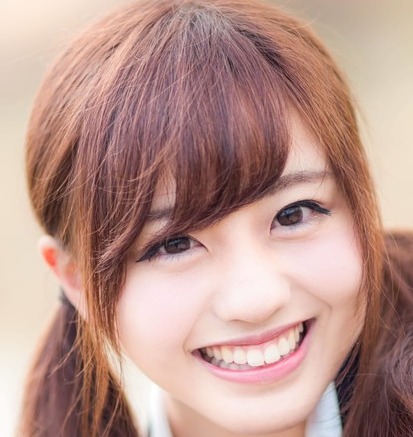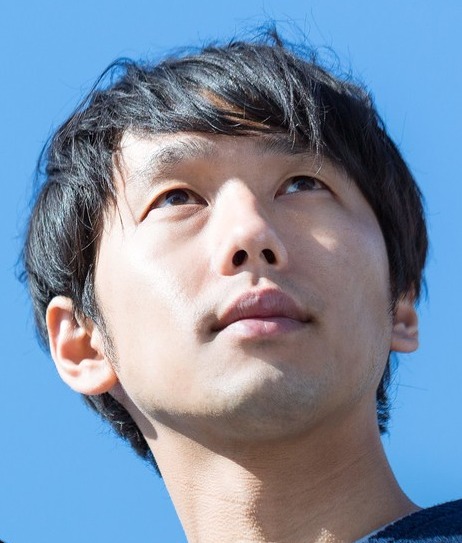Probability Adverbs; 絶対に, たぶん, もしかすると, etc…
Have you been got confused about what probability adverbs are? There are many Japanese probability adverbs, which are 絶対に, 確かに, たぶん, おそらく, もしかすると, おそらく, etc. Let me introduce how you correctly use them today!
可能性 (kanousei)
Possibility
100%: 絶対に / 確かに (definitely)
95%: 確かに / 絶対に (certain)
80-90%: たぶん / おそらく / ありえる (probably)
60%: たぶん / ___しそう (likely)
30-50%: たぶん / もしかすると, もしかしたら / おそらく / ___ かも (maybe, perhaps)
20%: ひょっとすると___かも / かもしれない (possibly)
15%: しそうもない / する可能性が低い (unlikely)
0-10%: 全くありそうもない (improbable)
絶対に (zettai ni), 確かに (tashika ni) [Certainty factor 100%]
Definitely
“絶対に(zettai ni) and 確かに(tashika ni)” is “Definitely” which means “without a doubt”. And Certainty factor is 100%, so you use “絶対に, 確かに” to emphasize that something is the case, or to emphasize the strength of your intention or opinion.
\ Learn Japanese with a personal native teacher!/
Sample
来週映画観に行かない? (Wanna see a movie next week?) (下周去看电影不?) (다음 주에 영화 보러 갈래?) (Tuần sau đi xem phim được không?) (raishū eiga mini ika nai?)


絶対行く! (Definitely!) (绝对要去!) (꼭 갈래!) (Đi chứ còn gì nữa!) (zettai iku!)


絶対行くべきだよ! (You should definitely go!) (你应该要去的!) (꼭 가야 해!) (Không đi là phí lắm đó!) (zettai iku beki dayo!)
確かに (tashika ni), 絶対に (zettai ni) [Certainty factor 95%]
Certainly
“確かに(tashika ni) and 絶対に(zettai ni)” is “Certainly” which means “undoubtedly; surely”. And Certainty factor is 95%, so you use “確かに, 絶対に” to emphasize what you are saying when you are making a statement.
Sample


確かに変わってるなぁ。 (This is certainly unique.) (确实已经改变了呢。) (확실히 바뀌어 있네.) (Đúng là khác người thật đấy.) (tashikani kawatteru nā.)


さくらは絶対飲み会に来るよ! (Sakura is certainly coming to the drinking party.) (小樱绝对会来聚餐!) (사쿠라는 꼭 술자리에 올거야!) (Chắc chắn Sakura sẽ đến bữa nhậu đấy!) (sakura wa zettai nomi kai ni kuru yo!)
たぶん (tabun), おそらく (osoraku), ありえる (arieru) [Certainty factor 80-90%]
Probably
“たぶん (tabun), おそらく (osoraku) and ありえる (arieru) ” is “Probably” which means “almost certainly”. And Certainty factor is 80-95%, so you use “たぶん, おそらく, ありえる” mean that something is very likely. You can use “たぶん, おそらく, ありえる” when you want to make your opinion sound less forceful or definite so that you do not offend people. That’s why most Japanese like the word “たぶん, おそらく, ありえる”, but “おそらく and ありえる” are quite formal than “たぶん”. You might want to use たぶん in daily conversation.
Sample


明日、飲み会行く? (Are you going to the party tomorrow?) (明天的聚餐,去不?) (내일 회식 가?) (Ngày mai đi uống không?) (zshita, nomikai iku?)


うん、たぶん。 (Yeah, probably.) (嗯,也许吧。) (응, 아마.) (Ừ, để xem đã.) (un, tabun.)


おそらく行かないよ。 (No, probably not.) (恐怕不会去。) (아마 안 갈 거야.) (Chắc là không đi đâu.) (osoraku ika nai yo)
たぶん (tabun) / ___しそう (shisō) [Certainty factor 60%]
Likely
“たぶん (tabun) / ___しそう (shisō)” is “Likely” which means “such as well might happen or be true”. And Certainty factor is 60%, so You use “たぶん / ___しそう” to indicate that something is probably the case or will probably happen in a particular situation. You can use “たぶん / ___しそう” when you want to make your opinion sound less forceful or definite, so that you do not offend people. That’s why most Japanese like the word “たぶん”. Most Japanese use “たぶん” as the meaning of both “Probably, Likely, etc…”
Sample


外曇ってる? (Is it cloudy outside?) (外面是阴天吗?) (밖에 흐려?) (Bên ngoài trời đang âm u hả?) (soto kumotteru?)


うーん・・雨降りそうかなぁ。 (Umm…it’s likely to rain.) (嗯……好像会下雨吧。) (음… 비 올 것 같은데.) (Hmn… Chắc trời sắp mưa rồi.) (u-n…ame furi sō ka nā.)


たぶんマネージャーになるかも? (I’m likely to be a manager.) (也许你会成为一名经理?) (어쩌면 매니저 할 수도 있을걸?) (Có khi là tớ sẽ lên làm quản lý đấy?) (tabun manējā ni naru kamo?)
たぶん(tabun) / もしかすると(moshika suruto), もしかしたら(moshika shitara) / おそらく(osoraku) / ___ かも(kamo) [Certainty factor 30-50%]
Maybe / Perhaps
“たぶん(tabun) / もしかすると(moshika suruto), もしかしたら(moshika shitara) / おそらく(osoraku) / ___ かも(kamo)” is “Maybe / Perhaps” which means “used to express uncertainty”. And Certainty factor is 30-50%, so You use “たぶん / もしかすると, もしかしたら / おそらく / ___ かも” to express uncertainty. You can use them when you want to make your opinion sound less forceful or definite, so that you do not offend people. That’s why most Japanese like the word “たぶん / もしかすると, もしかしたら / おそらく / ___ かも”. Most Japanese use “たぶん” as the meaning of “Probably, Likely, Maybe, Perhaps, etc…”. “おそらく” is pretty formal than “もしかすると or もしかしたら and ___かも”. It depends on the people using these words, however, if you feel the possibility is pretty lower, that would be “もしかすると or もしかしたら and ___ かも” are better. If it’s fifty-fifty, that would be “たぶん” is better to use. Although “もしかすると or もしかしたら” is the same as “おそらく and おそらく” are pretty formal.
Sample


あってるよね? (Is it right?) (说中了吗?) (맞지?) (Đúng rồi nhỉ?) (atteru yone?)


そうかもねー。 (You may be right.) (可能是吧。) (그럴지도.) (Có lẽ là vậy.) (sō kamo ne-.)


今晩暇? (Are you free tonight?) (今晚有空?) (오늘 밤 시간 있어?) (Tối nay rảnh không?) (kon ban hima?)


多分。 (Maybe.) (也许吧。) (아마.) (Chắc thế.) (tabun.)


もしかしたら夢だったのかも・・? (Perhaps it was a dream…?) (该不会是一场梦吧?) (어쩌면 꿈이었을지도…?) (Chắc chỉ là một giấc mơ thôi cũng nên?) (moshika shitara yume datta no kamo?)
ひょっとすると ___かも (hyotto suru to___kamo) / ___かもしれない(kamo shirenai) [Certainty factor 20%]
Possibly
“ひょっとすると(hyotto suru to___kamo) and ___かもしれない(kamo shirenai)” is “Possibly” which means “to indicate doubt or hesitancy”. And Certainty factor is 20%, so You use “ひょっとすると and ___かもしれない” to indicate that you are not sure whether something is true or might happen. It is pretty similar to say “I guess”. “___かもしれない” sounds a little bit younger than “ひょっとすると”. So “ひょっとすると来るかもね” can express “来るかもね”.
Sample


あってるよね? (Is it right?) (猜中了吧?) (맞지?) (Đúng rồi nhỉ?) (atteru yone?)


かもしれないない・・・ (Possibly…) (也许吧…) (그럴지도 모르겠네…) (Cũng có thể lắm …) (kamo shirenai…)


ひょっとすると来るかもね。 (He will possibly come here.) (说不定会来。) (어쩌면 올지도 몰라.) (Có lẽ nó sẽ đến.) (hyotto suru to kuru kamo ne.)
___ しそうもない(shisōmo nai) / ___ する可能性が低い(suru kanousei ga hikui) [Certainty factor 15%]
Unlikely
” ___ しそうもない(shisōmo nai) and ___ する可能性が低い(suru kanousei ga hikui)” is “Unlikely” which means “not likely to happen”. And the Certainty factor is 15%. So if you use “___ しそうもない and ___ する可能性が低い” that something is unlikely to happen or unlikely to be true, you believe that it will not happen or that it is not true, although you are not completely sure. “___ する可能性が低い” is pretty formal than “___ しそうもない”.
Sample


雨降りそうにないよ。 (It is unlikely to rain.) (感觉不会下雨。) (비 올 것 같지는 않아.) (Trời không có vẻ sắp mưa đâu.) (ame furi sō ni nai yo.)


このチームが勝つ可能性は低いんじゃない? (It’s unlikely this team is going to win, isn’t it?) (这支球队获胜的机率很低,不觉得吗?) (이 팀이 이길 가능성은 적잖아?) (Cơ hội chiến thắng của đội này thấp mà lại?) (kono chīmu ga katsu kanōsei wa hikui n janai?)
ありえない (arienai) / 全くありそうもない (mattaku arisōmo nai) [Certainty factor 0-10%]
Improbable
“ありえない(arienai) and 全くありそうもない(mattaku arisōmo nai)” is “Improbable” which means “definitely not likely to happen”. And Certainty factor is 0-10%. So if you use “ありえない / 全くありそうもない” that Something that is improbable definitely not likely to happen. “全くありそうもない” sounds a little bit stronger word than “ありえない” which is also the strong word though.
Sample


ありえなくない? (It’s too improbable, isn’t it?) (不可能吧!) (있을 수 없지 않아?) (Làm gì có chuyện vô lý thế?) (arie naku nai?)


ありえない事故だね。 (That was an improbable accident.) (不得了的事故。) (있을 수 없는 사고구나.) (Tai nạn này vô lý hết sức nhỉ.) (arienai jiko dane.)
\ Learn more! /









Comments